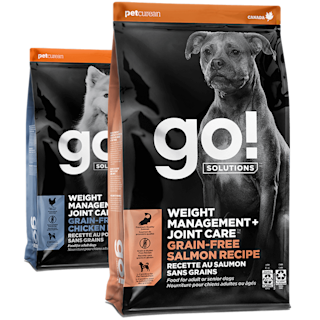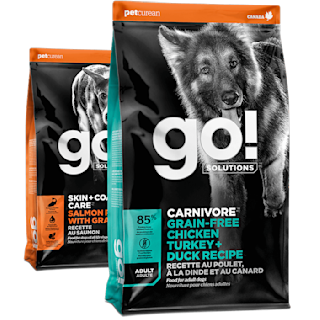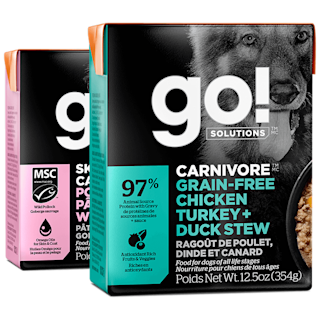August 22, 2025
10 Questions to Ask a Vet About Your Dog

As responsible pet parents we know that the dreaded visit to the vet is inevitable. Going for checkups once or twice a year can help ensure that your dog stays happy and health for as long as possible!
When you go to the vet, you can rest easy knowing that they will give your dog the attention they need but, once you leave the office, it’s up to you to continue that care.
Being proactive about your dog’s care and taking advantage of this time with your vet and their knowledge and experience will help you to ensure that you are getting everything out of these visits. Here are ten questions - you can ask a vet during each check-up to make sure that you have a thorough understanding of your dog’s needs.
1. Is my dog a healthy weight?
More than 50% of cats and dogs in the United States are overweight and many pet parents fail to realize just how serious a health problem obesity can be. A gain of even a few pounds can be significant and increase your dog's risk for chronic health problems such as diabetes, high blood pressure, and osteoarthritis. Find out what a dog that’s a healthy weight should look and feel like by using our body score chart.

Recommended Solution
Dog Food for Healthy Weight Management
Keeping your dog lean and fit is key to lifetime zoomies and games of fetch. With tasty lean proteins and functional ingredients like glucosamine and chondroitin for healthy joints, your pooch won't even notice you've put them on a 'diet'.
View Weight Management + Joint Care dog food
2. Is my dog getting enough exercise? What type of exercise is best?
Exercise is important for helping your pet to maintain a healthy weight, but some pets have a lower ability to tolerate exercise than others. Short-snouted dog breeds, for example (like Bulldogs and Pugs), have low exercise tolerance and may overheat easily with vigorous exercise. Your vet can tell you what kind is best for your dog and how much is appropriate.
3. What about my dog's diet?
Diet can play an important role in a dog’s overall health and wellness. Feeding a high-quality food that is formulated to meet your dog’s nutritional needs can help keep them happy and healthy!

Recommended Solution
Healthy Dog Food Made by Nutrition Experts
Explore our collection of premium dog food recipes. Crafted to suit your dog's unique dietary needs including food allergies, sensitivities, or meat-loving palates.
View dog food
4. Is my dog up to date on vaccinations?
Discuss vaccination protocols with your vet as some are following newer guidelines. Your vet may also recommend certain vaccines based on certain factors such as, where you live and what activities your dog partakes in, so ask your vet which shots your dog is going to need next and when they are going to need them.
Keep in mind any upcoming vacations – if you need to put your pup in a boarding facility, many require your dog to be up-to-date on their vaccinations. And if you’re taking your dog with you out of the country, you may need to get additional shots for Fido.
5. Does my dog need parasite/flea/tick protection and which product should I use?
Dogs and cats should both be protected against fleas, ticks, and common parasites like roundworms and tapeworms, even if you think they may have limited exposure. Ticks have the potential to carry deadly diseases like Lyme disease, and many parasites can cause serious illness, so it is worth protecting your dog with a routine preventative.
6. Are my dogs teeth healthy?
Many pet parents may be unaware of their dog’s dental health which, unfortunately, can result in the development of a degree of gingivitis or even periodontal disease by the time they are three years old. Your dog should have an oral checkup during each vet visit and you should brush their teeth as often as you can.
7. Does my dog need a blood test or urine test?
Most routine veterinary checkups do not include blood and urine tests unless the dog is showing signs of some form of disease. It never hurts, however, to ask your vet whether one of these tests might be beneficial just to make sure your dog is healthy, because having healthy blood/urine results can be important to compare to, especially for senior pets, or pets who develop an illness.

8. Is [insert behavior here] normal?
Dogs exhibit some unique behaviors, and they aren’t always easy for pet parents to understand. If your dog has recently started to exhibit an unfamiliar behavior, it’s worth asking your vet to make sure it isn’t a sign of a developing health problem.
9. How can I better care for my dog?
The best question you can ask your veterinarian is how to be a better parent to your dog. There could be something simple that you aren’t doing which might be very beneficial for your dog, but you’ll never know unless you ask. These may be simple things, like incorporating wet food to improve hydration.

Recommended Solution
Premium-Quality Wet Dog Food Recipes
Delight your four-legged friend with our hydrating wet dog food recipes. Each dish features a blend of high-quality proteins and antioxidant-rich ingredients for wholesome nutrition.
View wet dog food
10. When should I bring my dog back for the next checkup?
Regular veterinary care is the key to catching health problems in the early stages when they are still treatable. As your dog ages, they may require more frequent trips to the vet to ensure they are maintaining good health.
In Conclusion
The more questions you ask your veterinarian, the more knowledge you will gain and that can only help you to become a better pet parent. You need to do more than just ask the questions, however – you also have to put that knowledge to use in caring for your dog.
Pro Tip: Take notes during your visit – or even better, ask your vet if you can record the conversation. That way, you won’t have to worry about forgetting important details by the time you get home.



